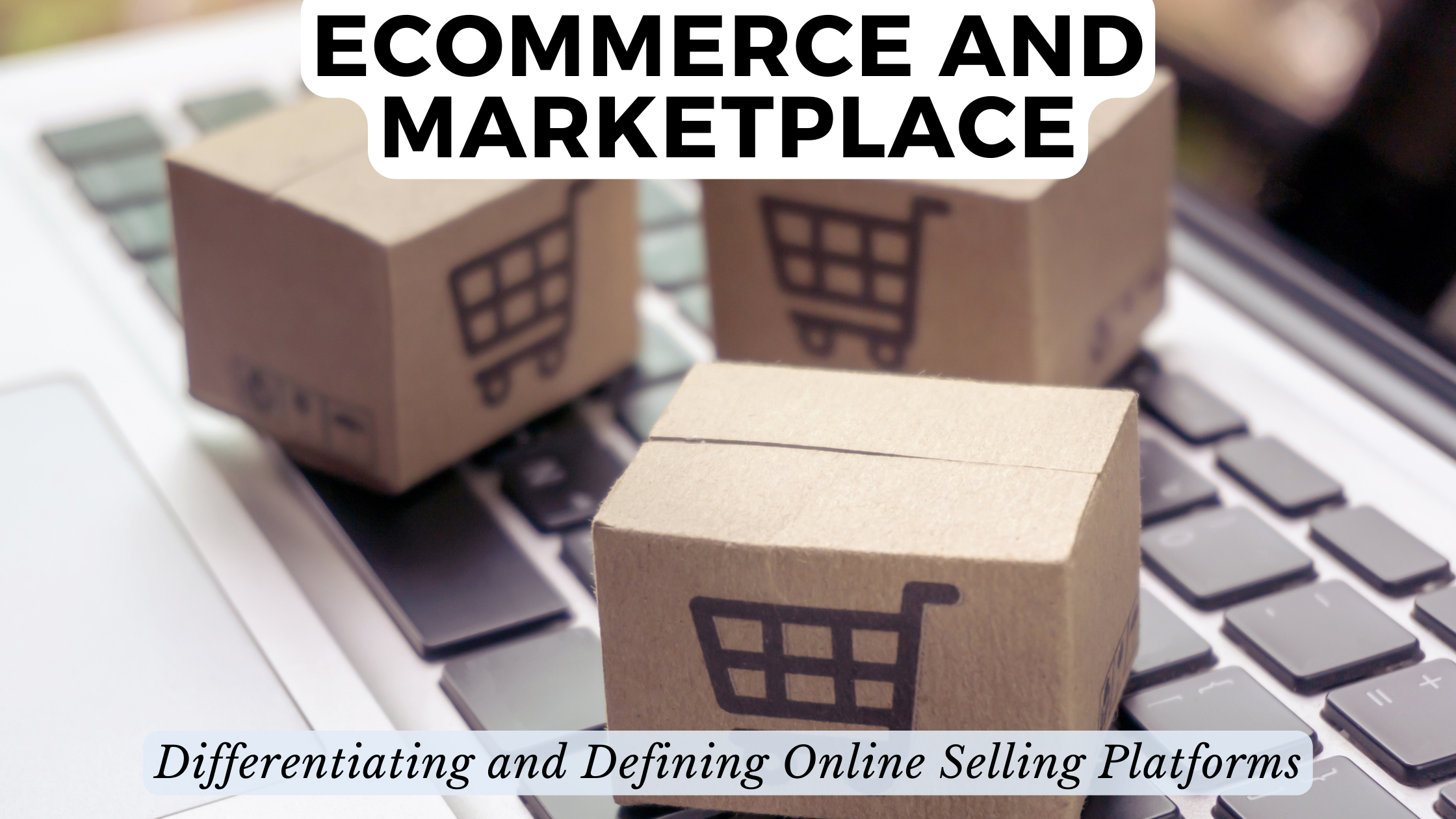Ecommerce and Marketplace: Differentiating and Defining Online Selling Platforms


Ecommerce and Marketplace: Differentiating and Defining Online Selling Platforms
The world of online commerce has evolved, giving rise to various selling platforms, including ecommerce and marketplaces. While these terms are often used interchangeably, they represent distinct models with unique characteristics. In this comprehensive guide, we’ll delve into the differences between ecommerce and marketplaces, providing clarity for businesses and individuals navigating the online selling landscape.
Understanding Ecommerce
Ecommerce, short for electronic commerce, refers to the process of buying and selling goods and services over the internet. It involves transactions conducted on a business’s website or an online store. Key features of ecommerce include:
1. Single-Store Focus:
Ecommerce platforms typically represent individual businesses or brands. Customers visit a specific online store to browse and purchase products directly from that brand.
2. Brand Control:
Businesses have full control over their ecommerce stores, from branding and design to product listings and pricing. This control allows for a tailored shopping experience.
3. Transactional Independence:
Each ecommerce store operates independently, managing its transactions, inventory, and customer relationships. The focus is on building a direct connection with customers.
4. Examples of Ecommerce Platforms:
Deciphering Marketplaces
Marketplaces, on the other hand, serve as platforms that host multiple third-party sellers offering their products or services. They provide a centralized location for various sellers to reach a broader audience. Key features of marketplaces include:
1. Diverse Seller Base:
Marketplaces bring together multiple sellers, often specializing in different product categories. Customers can explore a wide range of offerings within a single platform.
2. Unified Shopping Experience:
Customers have a unified shopping experience across various sellers within the marketplace. They can add products from different sellers to a single shopping cart.
3. Transaction Facilitation:
Marketplaces facilitate transactions between buyers and sellers, often handling payment processing and providing a standardized framework for product listings.
4. Examples of Marketplaces:
Is Ecommerce the Same as a Marketplace?
No, ecommerce is not the same as a marketplace. While both involve online selling, the fundamental distinction lies in the structure and operation of the platforms. Ecommerce represents individual online stores, whereas marketplaces aggregate multiple sellers in a single platform.
Relevant SaaS Products for Optimal Selling Platforms
To enhance your online selling experience, consider leveraging the following SaaS products:
1. Shopify:
Purpose: Ecommerce Platform Shopify empowers businesses to create customizable online stores, managing everything from product listings to payments.
2. WooCommerce:
Purpose: Ecommerce Plugin for WordPress Ideal for WordPress users, WooCommerce turns websites into fully functional online stores with ease.
3. Magento:
Purpose: Ecommerce Platform for Larger Businesses Magento is a robust ecommerce solution catering to the needs of larger enterprises, offering scalability and customization.
4. Amazon Seller Central:
Purpose: Marketplace Management For those exploring the marketplace model, Amazon Seller Central provides tools to manage listings, orders, and customer interactions.
5. eBay for Business:
Purpose: Marketplace Selling eBay for Business offers resources for sellers looking to thrive in the diverse marketplace environment.
Conclusion: Navigating the Online Selling Landscape
In conclusion, understanding the differences between ecommerce and marketplaces is crucial for businesses aiming to establish a strong online presence. Whether you opt for a dedicated ecommerce store or a marketplace approach, the key is to leverage the right SaaS tools and platforms to optimize your selling strategy.
Transitioning to Subscribed.FYI offers a holistic approach to managing your SaaS stack. From ecommerce platforms to marketplace tools, Subscribed.FYI simplifies the decision-making process by providing comprehensive insights and secret deals.
Relevant Links:
- Shopify
- WooCommerce
- Magento
- Amazon Seller Central
- eBay for Business
- Subscribed.FYI
- Subscribed.FYI Deals








